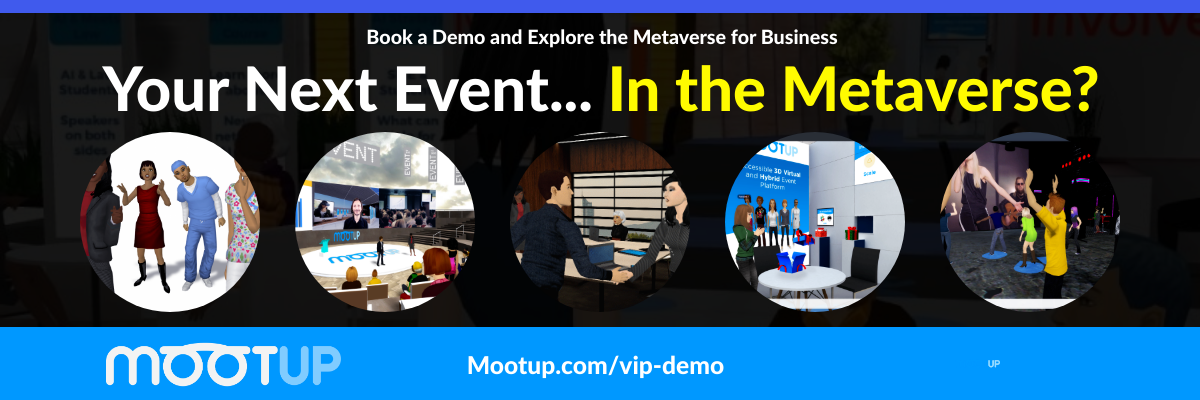How to Increase Event Attendance at Virtual Events
Virtual events have become increasingly popular in recent years, offering a convenient and cost-effective way to connect with a global audience. However, one of the biggest challenges faced by event organizers is how to increase attendance and engagement at these virtual events. In this article, we will discuss some strategies and tips to help you boost attendance at your next virtual event.
Understand Your Audience
Before you start planning your virtual event, it’s important to understand your target audience. Who are they? What are their interests and preferences? By gaining a better understanding of your audience, you can tailor your event to meet their needs and expectations. Consider conducting surveys or focus groups to gather insights into what will resonate with your target audience.
- Conduct market research to identify the demographics and preferences of your target audience.
- Create buyer personas to better understand the motivations and challenges of your audience.
- Use analytics tools to track engagement and interactions to gain insights into audience behavior.
Create Compelling Content
One of the key drivers of event attendance is the quality of the content you offer. Make sure that your virtual event provides valuable and relevant information that attendees can’t find anywhere else. Consider featuring industry experts, thought leaders, or influencers as speakers to attract a larger audience. Additionally, offer a mix of formats such as keynote presentations, panel discussions, workshops, and Q&A sessions to keep attendees engaged.
- Develop a content strategy that aligns with the interests and needs of your target audience.
- Create engaging and interactive sessions that encourage participation and discussion.
- Provide actionable takeaways and resources that attendees can apply in their own work or life.
Leverage Social Media
Social media platforms are powerful tools for promoting your virtual event and reaching a wider audience. Create a dedicated event hashtag and encourage attendees to share their thoughts, photos, and experiences on social media. You can also collaborate with industry influencers or partners to amplify your event’s reach. Consider running targeted ads on platforms like Facebook, LinkedIn, and Twitter to attract new attendees.
- Utilize social media scheduling tools to plan and automate posts leading up to the event.
- Engage with your audience through polls, Q&A sessions, and live updates to build excitement.
- Monitor social media metrics to track engagement, reach, and sentiment around your event.
Offer Incentives
Everyone loves a good incentive, so consider offering perks or rewards to encourage attendance at your virtual event. This could include early bird discounts, exclusive content, giveaways, or access to networking opportunities. Incentives can help to create a sense of urgency and excitement around your event, driving more people to register and attend.
- Create a referral program where attendees can earn rewards for referring friends or colleagues.
- Provide exclusive access to premium content or resources for registered attendees.
- Offer discounts or promotions for group registrations or returning attendees.
Optimize Registration Process
A complicated or lengthy registration process can deter potential attendees from signing up for your virtual event. Make sure that your registration form is user-friendly, easy to navigate, and mobile-responsive. Consider offering multiple registration options such as single-day passes, full event access, or VIP packages to cater to different preferences and budgets.
- Implement a streamlined registration process with minimal required fields for sign-up.
- Use a secure payment gateway to ensure a smooth and hassle-free registration experience.
- Provide clear instructions and FAQs to address common registration issues and concerns.
Enhance Networking Opportunities
One of the key benefits of attending events is the opportunity to network and connect with like-minded professionals. To recreate this experience in a virtual setting, consider incorporating interactive features such as virtual lounges, networking sessions, or breakout rooms. Encourage attendees to engage with each other through live chats, Q&A sessions, or group discussions to foster a sense of community and collaboration.
- Host virtual networking events before or after the main sessions to facilitate connections.
- Enable private messaging or chat features for attendees to communicate and exchange contact information.
- Facilitate group discussions or topic-based forums to encourage networking and knowledge sharing.
Follow Up and Engage After the Event
The relationship with your attendees shouldn’t end once the event is over. Follow up with attendees post-event to gather feedback, thank them for their participation, and provide resources or recordings of sessions they may have missed. Consider hosting post-event webinars, surveys, or virtual meetups to keep the conversation going and maintain engagement with your audience.
- Send personalized thank you emails with a survey link to collect feedback and suggestions.
- Provide on-demand access to session recordings or presentation materials for attendees to revisit.
- Invite attendees to join exclusive online communities or forums to continue networking and discussions.
By implementing these strategies and tips, you can increase event attendance and engagement at your next virtual event. Remember to stay flexible, adapt to changing trends, and continuously seek feedback to improve the attendee experience. With the right approach, you can attract a larger audience and create a memorable virtual event that leaves a lasting impression on your attendees.
FAQ
1. How important is it to understand your audience when planning a virtual event?
- Understanding your audience is crucial when planning a virtual event as it allows you to tailor the event to meet their needs and expectations, ultimately increasing attendance and engagement.
2. What role does compelling content play in driving event attendance?
- Compelling content is a key driver of event attendance as it provides valuable information that attendees can’t find elsewhere. Featuring industry experts and offering a mix of formats can help attract a larger audience.
3. How can social media be leveraged to promote a virtual event?
- Social media platforms can be used to promote a virtual event by creating a dedicated event hashtag, encouraging attendees to share their experiences, collaborating with influencers, and running targeted ads on platforms like Facebook, LinkedIn, and Twitter.
4. Why is offering incentives important for increasing attendance at virtual events?
- Offering incentives such as discounts, exclusive content, giveaways, or networking opportunities can create a sense of urgency and excitement around the event, driving more people to register and attend.

